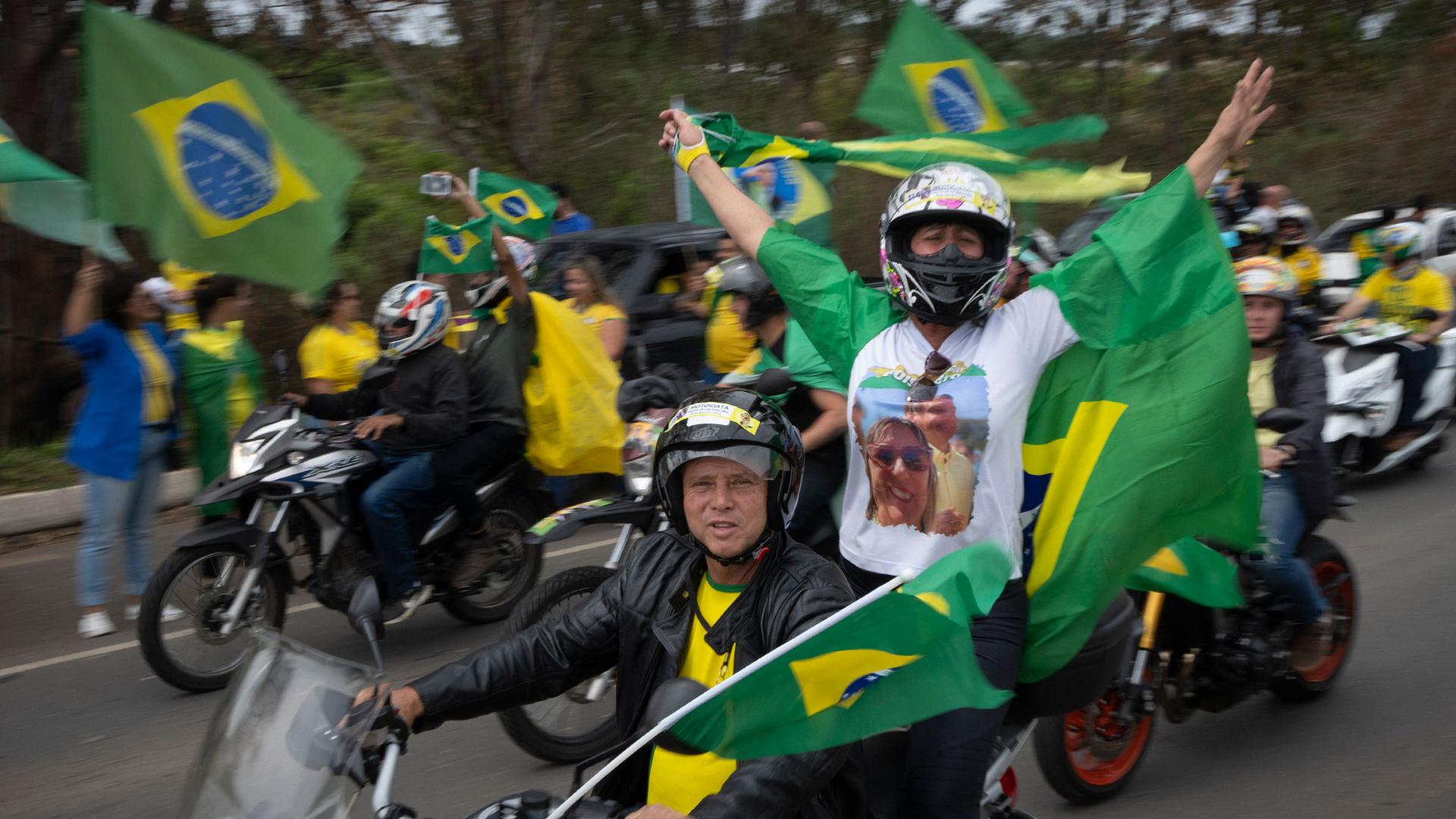The feeling on the streets of Brazil is one of both tension and excitement.
The country is preparing for the first round of its presidential elections on Sunday. The vote is between far-right President Jair Bolsonaro — an ally of former US President Donald Trump — and former left-wing President Luiz Inacio Lula da Silva. Lula is well ahead in the polls.
Marches and rallies in defense of both candidates have littered the country in recent weeks. And their videos have been shared across social media.
But the presidential candidates are not the only ones organizing.
Brazilians will also elect 500 congresspeople, more than a thousand state lawmakers, two dozen senators and 27 state governors. Plus, this year, more Indigenous people, women and Black candidates are running for office than ever before.
For the first time, the country’s largest Indigenous organization APIB is fielding Indigenous candidates in states across the country, with the hope of launching a congressional caucus of Native peoples. The first female Indigenous congressional member, Joênia Wapixana, was only elected just four years ago.
“Hey folks, I’m here to talk to you about the importance of putting our Indigenous people in important positions of power,” said Indigenous activist Samela Sateré Mawé in a video posted online.
“We have suffered violence against our people,” Sateré Mawé went on. “There have been bills pushing [for] the destruction of our territories, the environment and against our lives, and we need to change this.”
They are hoping to push back on the country’s big ag (agriculture) caucus in Congress. That group includes roughly half of the members of the lower house, who have been important allies for Bolsonaro and his aims to open up the Amazon for development.
But Indigenous peoples are not the only ones hoping for change.
Leaders of Brazil’s Landless Workers Movement met with the press to discuss how they’ve helped to launch thousands of local grassroots committees. They are now organizing in neighborhoods up and down Brazil in support of Lula’s candidacy.
The landless movement is also fielding its own candidates for the first time. Fifteen members are running for state and federal office in a dozen states, with campaigns focused on promoting local family farming, labor rights and environmental sustainability.
“These candidates are a sign of the landless movement’s achievements,” said activist Luma Vitorio, who has been working closely with the movement. “We need to speak for ourselves. We can’t continue to outsource that job to others.”
These groups are hoping to gain ground against the far-right wave of candidates that rode into local and national office in 2018 on Bolsonaro’s coattails.
“The more that we have diversity of representation in legislative bodies, the better it is for our political system.”
“These legislative elections will be important,” said Luciana Santana, a political scientist at the Federal University of Alagoas. “The more that we have diversity of representation in legislative bodies, the better it is for our political system.”
But this campaign season has not been easy, with some candidates facing intimidation.
“We were marching and we were intimidated,” said Lula ally and Workers’ Party Congressman Paulo Guedes in a video shared widely over social media. “A member of the military police shot three times into our sound truck. Thank God he’s now detained. But this is absurd. And it’s the third time it’s happened.”
Black, gay and transgender candidates have also been in the crosshairs.
Matheus Gomes is a Black city councilman in Porto Alegre, who’s running for a seat on the Rio Grande do Sul state assembly. He and other members of the city’s Black caucus received a new string of death threats over email.
“They’re trying to intimidate us,” Gomes told The World. “The last message I received said that I should give up politics. They mentioned Bolsonaro. This is, by far, the most tense feeling on the streets I have ever experienced during an electoral campaign.”
That tension is palpable. According to reports, this is one of the most violent electoral seasons on record.
In a recent poll, two-thirds of Brazilians said they were afraid of being attacked because of their political preferences. Many blame the violent rhetoric of Bolsonaro and his allies for instigating the threats and attacks. But Bolsonaro insists he is not responsible for local actions and that the conflict goes both ways.
Luciana Santana, the political scientist, said that the violence is the result of the country’s deep political polarization.
“It’s a very delicate situation,” she said. “And it’s really concerning, because some public officials are even empowering these people who are carrying out these violent actions.”
Many Brazilians are hoping that these elections may start to turn the tide.
The polls are open from 8 a.m. until 5 p.m. on Sunday, with results expected to be released only hours later.
Related: Evangelicals in Brazil want to make contact with Indigenous groups. But why?
We’d love to hear your thoughts on The World. Please take our 5-min. survey.
